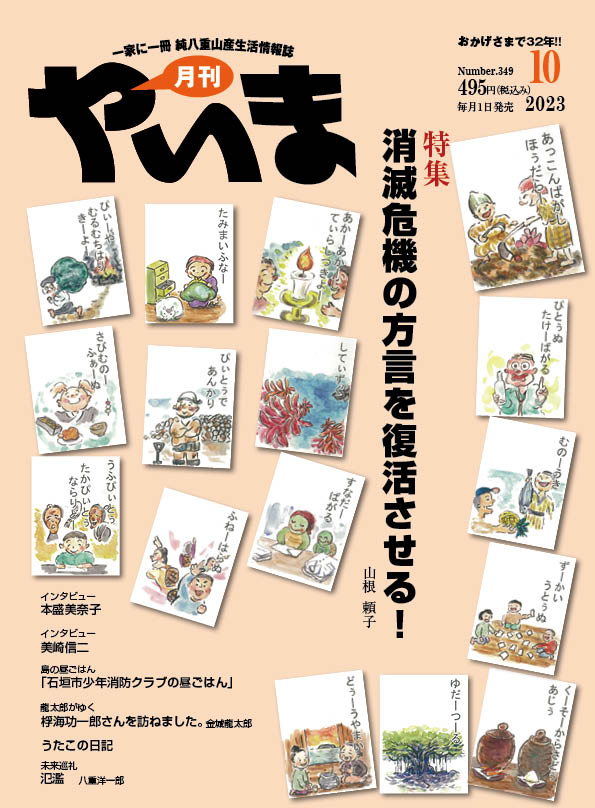
When the words you use are not understood by people from other regions, most people only then realize, ``So this is a dialect!''
When it comes to dialects, I'm the type who looks them up in a dictionary rather than on the internet, but the words we use are subtly different from the traditional Yaeyama dialect. The original meanings of some words have become narrower, while others have become broader.
For example, in my house, we use "karabai" to mean (dry lips). It's a word we often use in the winter. It's like, "My mouth is going to cut if I laugh because it's dry now." In the dictionary, "karabai" is listed as "karabai," and has three meanings: (1) chapped skin, (2) cracked hands and feet due to dryness, and (3) dry, cracked lips).
The sound has changed slightly from "karabai" to "karabai", and my family only knew the meaning of ③. This means that "karabai" has fewer meanings in the Otake family. What about in everyone's homes?
Also, "gaba" is a word that means "dirt" in the dictionary. However, some people also call "oil on a plate" or "mud on shoes" "gaba." The traditional meaning of "dirt" in the Yaeyama dialect seems to tend to mean "dirt in general" in Yaiyama Tomunu.
Language is a living thing. It is natural that sounds and meanings change with the times. However, from the perspective of "preserving the Yaeyama dialect!", Yoshinori thought that it must be important to look up a dictionary like this every now and then and look back at the records of words used by people in the past.






